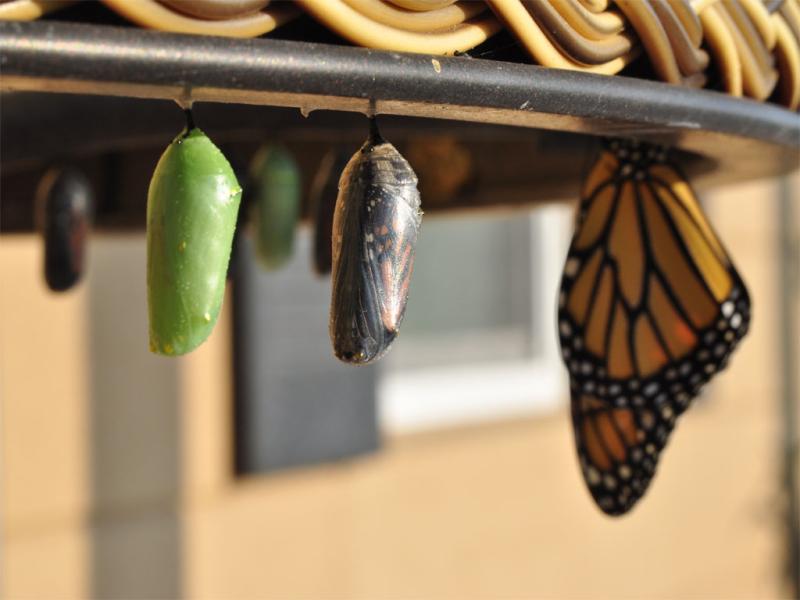COVID-19 may still dominate almost every conversation as we head into 2021 but the encouraging news of a vaccine has at least injected the discussion with a hefty shot of optimism. More so than ever before, it really does seem possible to discern light at the end of the tunnel.
The prospect of a return to something like normality raises numerous important questions for many businesses and their employees. Among the most fundamental and pressing is this: which companies will be best equipped to survive and thrive when we finally emerge, blinking, from the pandemic?
All other questions are somehow linked to the above. How recognisable will “normality” actually be? Which of the shifts that have occurred amid the tumult of 2020 are likely to endure and which are likely to fade away? Will overarching priorities and the basic recipe for success have changed significantly or will they retain a reassuring air of familiarity?
Some firms, most obviously those that have conspicuously benefited from the crisis, may feel that they already know the answers. Many others, who have suffered amid the turmoil, will need to come up with their own responses very soon.
Innovation versus indolence
COVID-19 countermeasures have sent thousands of companies into the business equivalent of an induced coma. Although the sad truth is that some will never come round, plenty of firms that have made it this far may yet stir anew in due course.
This is because people are liable to resume some of their old habits once the pandemic is under control. While business models geared towards a stay-at-home lifestyle have clearly prospered at the expense of those less in keeping with a mass move to “remoteness” in recent months, some degree of reversion is highly likely. This means that many companies might better see lockdown as a period of enforced hibernation.
The problem, though, is that in the sphere of commerce – just as in the natural world – hibernation can mean different things. Like a caterpillar, some businesses might regard it as an opportunity for necessary metamorphosis, while others, similar to a grizzly bear, might regard it as nothing more than an epic slumber.
The latter approach is of no use in today’s extraordinary circumstances. The companies most likely to bounce back are those that try to reconstitute themselves in some way. Those that merely bank on waking up to discover an astonishing transformation of their fortunes and the effortless recommencement of “business as usual” are likely to be severely disappointed.
Reaching for the sky – or not
So, what manner of metamorphosis are we talking about? The purest form is internal; restructuring what is already there, with the major investment of time – a commodity normally in short supply. Conventional wisdom suggests that any company willing to invest during an economic shock is likely to fare better than its more passive competitors over the longer term. Not least in the unique instance of the COVID-19 crisis, a crucial goal should be to improve market position in the face of ever-developing consumer choice.
With this objective in mind, a farsighted business might re-examine its costs. It might take steps to reinforce its balance sheet. Maybe most usefully of all, it might embrace innovation with a view to re-establishing its relevance and strengthening its resilience in anticipation of renewed demand for its products and services.
We can illustrate this argument with reference to the contrasting approaches and fates of two companies. Both are big names, and both operate in one of the sectors hardest hit by the pandemic – air travel.
In the words of Tony Fernandes, its CEO, AirAsia “used this downtime to review every aspect of operations”. As a result, it “successfully pivoted from an airline to an all-in-one digital lifestyle company anchored in travel” – thereby preserving a substantial chunk of its revenue. Meanwhile, Virgin Atlantic demanded a government bailout, failed to get it and filed for bankruptcy.
It pays to pivot
AirAsia’s experience underlines a couple of vital points, the first of which is that it’s essential to evolve. It always is. Even during the best and most serene of times, no company can expect to sustain by standing still.
The second point, which is directly related to the first, is that normality isn’t going to be precisely what we knew before. It may well be comfortingly similar, but it won’t be identical. Some of the novelties which the pandemic and lockdown have given rise to are going to stick. Barring something truly unforeseen, we won’t witness a dramatic and all-encompassing retreat from “remoteness” – especially with 5G imminent.
Every business will need to adapt to some extent – and so will employees. Fernandes spoke of a “pivot”, and this is almost certainly poised to be the next buzzword of our age.
None of this means that the metamorphosis has to be spectacular in every case: it simply means that staying exactly the same isn’t a realistic option. As ever, implementing change while never forgetting what brought stability, security and growth in the first place is likely to be key. There is light at the end of the tunnel, so don’t make the terrible mistake of sleepwalking towards it as hibernation at last comes to an end.
Paul Kirkham is a researcher in the field of entrepreneurial creativity and Ingenuity Learning Support Development Officer at Nottingham University Business School’s Haydn Green Institute for Innovation and Entrepreneurship (HGIIE). David Falzani MBE is a Professor at HGIIE and president of the Sainsbury Management Fellowship.
